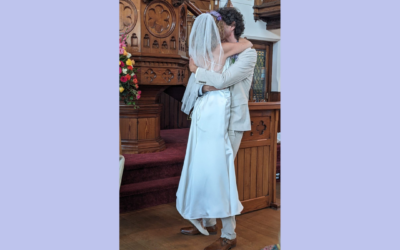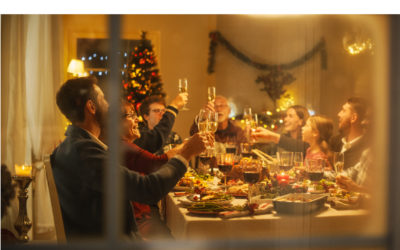When I tell people that I’m a relationships coach, they often ask me what made me choose this as my work.
The best answer I can give is that I see life as being made of relationships, because our relationship to ourselves, to others and to life, is ultimately what determines our experience (and quality) of life. So one of my biggest curiosities has always been how relationships work, and how us humans can make them work for us, so that we can be as happy and fulfilled as we can be.
It’s my job to support people to enjoy wellbeing, confidence and happiness in all the relationships that make up their life experience: their relationships with themselves (the primary relationship which determines the quality of all our other relationships and interactions) their relationships with family, partner(s), friends, work colleagues, customers/clients, and of course with life itself. I have the huge privilege of witnessing the transformation of my clients’ relationships and seeing how much those changes improve their quality of life.
I tend to my own human relationships in the same way an avid gardener tends to their garden. I plant, water, weed and feed, by turning up as best I can for both myself and others: with presence, kindness, compassion, clear communication and deep listening, healthy boundaries, authenticity, self-awareness, curiosity and a keen willingness to keep learning and growing.
I appreciate the challenges my relationships bring me as much as I appreciate the joys, because they provide an essential training ground for my work. My choice of professional training has been largely led by what I myself have needed to learn over the course of my own life in order to have healthy, harmonious and fulfilling relationships. First I walk the walk (experience the challenge), then I learn the talk (get training to help me face the challenge). Then I both talk the walk (use what I learn to support my clients facing similar challenges) and walk the talk (continue to live it in my own life)!
For example, I chose to take training in polyvagal theory because I noticed how much the survival states of flight/flight and freeze – both my own and others – affected my relationships. I wanted to learn how to better understand and regulate my nervous system so that I could be more present and connected, with both myself and others, when relational challenges arose, and to be able to support my clients to do the same. Undergoing training in Voice Dialogue was also inspired by a desire to benefit both my personal and professional relationships. It gave me a deeper understanding of my own inner world of different parts or “selves” and how they turn up in my relationship with myself and others, whilst providing me with the skills needed to support my clients as a Voice Dialogue facilitator.
I think it’s fair to say that my work is very much a way of life. I love engaging in this cycle of ongoing learning, growth and service, and I’m hugely grateful for it.
More blogs
What’s Self-Love Got To Do With It? My Wedding at Age 47
I recently got married to someone wonderful, who is consistently available, loving and deeply kind (who happens to be quite a bit taller than me as you can tell by my feet!), which still feels like something of a miracle to me - because I can honestly say that there...
What’s Self-Love Got To Do With It? My Wedding at Age 47
I recently got married to someone wonderful, who is consistently available, loving and deeply kind (who happens to be quite a bit taller than me as you can tell by my feet!), which still feels like something of a miracle to me - because I can honestly say that there...
Relationships and Self-Care at Christmas and Holiday Time
The Christmas and holiday period can powerfully magnify both the joys and the challenges of life, and our relationships. The joys can be wonderful - getting together with those we love, celebration, fun, gifts, spiritual communion, a break from the usual day-to-day,...
I've always wanted to make the lifelong commitment of partnership in marriage, and it's been a very long journey for me to get to my wedding day at age 47. I spent a lot of my adult life in painful patterns when it came to romantic relationship, which included being attracted to those who weren't really available, and not able, for their own reasons - and I say this without any blame - to meet and love me in all the ways I wanted to be met and loved. And I wasn't willing to settle for a relationship that wasn't truly right for me.
It has taken a lot of determination, courage and persistence to overcome and heal the obstacles within me that got in the way of experiencing the relationship I wanted, and indeed to become the kind partner that I would myself want to commit to.
I could write a whole book about the process (maybe one day I will), but for now I'll just say that the most important aspect of it has been (and always will be) my commitment to Love in my primary relationship - my relationship with myself.
Love with a capital "L" is unconditional - it can't be fallen out of. So even when I fall out of "like" with myself, it's always in the greater context of my commitment to loving myself, which means I always come back to the recognition that I am unconditionally loveable and worthy of love.
We all know that Self-Love can be a real challenge. It requires commitment to doing what it takes to have a truly healthy relationship with ourselves - an ongoing deepening of self-awareness, attunement and kind responsiveness to our needs and feelings, being open to seeing things about ourselves that are hard to look at and own, and learning to embrace parts of us that we feel the impulse to push away and disconnect from.
But it is so incredibly worth it - and the alternative certainly isn't a recipe for happiness - because self-love, or the lack of it, sets the tone - and determines the quality - of all of our relationships. Whilst I'm loving and embracing myself, I can't not be loving my husband... I can't not be loving everyone (which definitely includes setting healthy boundaries, and sometimes walking away, of course).
Even when I don't like parts of them. Even when there's conflict and it's painful. My commitment to Love guides me back home to my deepest self and invites me to do the work I need to do to meet the other with Love - whether it's learning to communicate more clearly and kindly, listening openly to feedback, or soothing and holding the vulnerable parts of myself more fully and compassionately when there's reactivity in our relating, to name a few examples.
Whether I'm coaching an individual or a couple around their relationships, I see that the most important part of my job is to keep inviting folk back to their relationship with themselves. That's always what needs kind and loving tending to first, whatever is happening in their relationships with others.
Which is why I'm so passionate about supporting people with self-love, and with making it practical - so it's more than just an idea, or yet another thing to have to achieve or "get right".
If you’re interested in finding out more about the coaching and workshops I offer, please do get in touch at info@nicola-madden.com
Ps. I am definitely not saying "you have to love yourself before anyone else can love you". This is a very unhelpful idea! And is simply not true.



